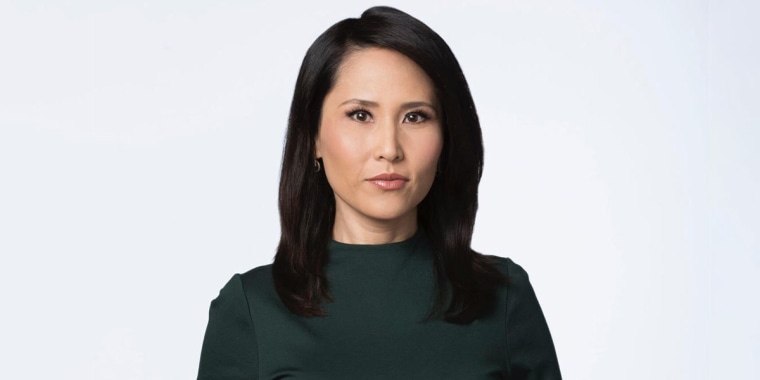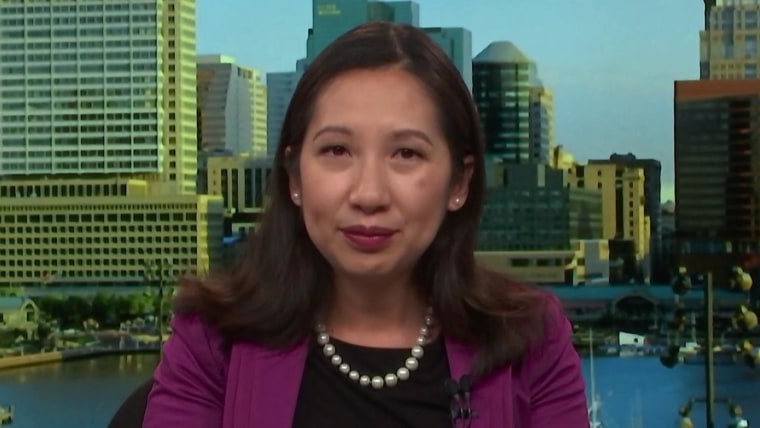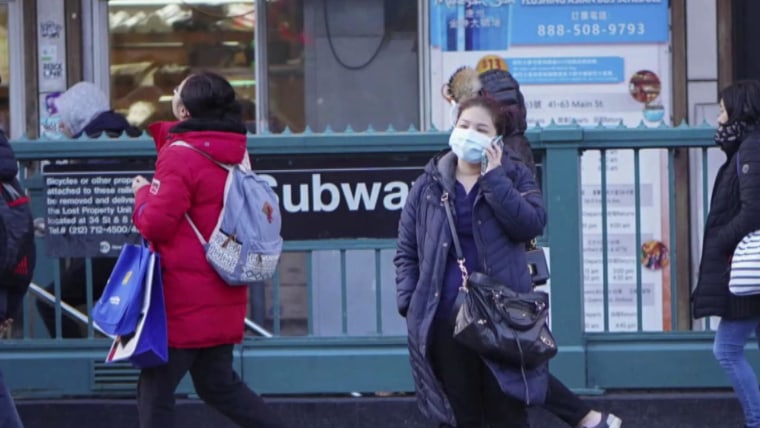One of the golden rules if you’re a journalist is to cover the story, not to become the story. You must also understand that while you may have thoughts and opinions, your job is to convey the facts accurately and without bias.
And yet as the coronavirus pandemic continues to dominate the news, one issue I have not covered is the increasing number of racially-motivated attacks against Asian people. I’ve read the articles about this from San Francisco to New York and across the pond in London.
In one week, more than 650 racist acts against Asian-Americans were reported in a new online reporting forum designed to help combat this new bigotry spreading alongside coronavirus.
RELATED: 'I had to fight for what I deserved': Vicky Nguyen's Know Your Value moment
I’ve started to see fellow Asian-American journalists stepping outside of their comfort zone with social media posts and op-eds, particularly in the Bay Area where I grew up, and where hate crimes against Asians were already in the news before the pandemic.
Then I was asked if I would weigh in, and I breathed a sigh of relief.
In fact, the first time I’ve ever tweeted directly to the president was when he started calling COVID-19 the “Chinese virus.” My tweet read, “Can you please call it the coronavirus or COVID-19 because calling it the Chinese virus encourages more racism and hate crimes.”
He doubled down and continued to call the Chinese virus.
How families can fight coronavirus as a unit
March 17, 202009:10And while I’m heartened by lawmakers on both sides of the political aisle, alongside celebrities and activists, condemning those remarks, it was a raw reminder that even in the highest circles of power, flames of racism can flare up easily and spread quickly. Even a White House correspondent reported that an administration official called COVID-19 the “kung flu” to her face, sparking a Twitter flurry. Some supported her, others called her a liar because she wouldn’t identify the person.
Joke or slur, I started to think about all the times people put me in a category or judged me because of how I looked. Usually no one can even figure out “which type of Asian” I am. Thai? Chinese? Korean? “Ohhhhh Vietnamese, but you look more Thai,” is a conversation I’ve had more than once.
When I was little, neighborhood boys in the Bay Area would sing, “We are Siamese if you please,” while pulling their eyelids up and making faces at me. When I first started reporting in Orlando, people would yell, “Hey it’s Connie Chung!” which, while dated, was a reference I didn’t actually mind that much. She was the first person I saw on network TV who looked remotely like me. And when I was in Reno, people emailed my station to ask, “Why can’t she speak English?”
RELATED: 5 ways to curb coronavirus-related stress and anxiety
All of this I’ve shrugged off. I’ve never focused on what my race did or didn’t do for me. It was simply a part of me, immutable. If someone treated me differently for my skin color, gender, or immigrant background, I found ways around them and those obstacles. My philosophy for most of life: Don’t stress about the things I can’t change. Spend energy on the things I can.
Keeping health care workers, public safe amid coronavirus
March 30, 202008:58I can’t change my race or ethnicity, but I can offer my words and my actions to encourage people to pause and take stock of the words flying around right now. There are lawmakers who want to call this the “Wuhan virus,” despite warnings from world health leaders who say we should no longer name diseases in this way.
Why? Because of exactly what’s happening. Racism can become acceptable, normalized. One of the saddest things I read was not just about someone being attacked, it was the victim saying how alone he felt because of the dozens of people who stood by, seemingly in silent acceptance that the violence was warranted.
For many in the Asian community, this is a new fear. It is for me. I’ve never felt afraid to walk around as an Asian person. But in this climate, I think about my parents, in their 60s and 70s and whether I should keep encouraging them to go outside for some air and exercise. When I went to the grocery store, I didn’t want to wear a mask because I thought someone might accuse me of bringing the “Chinese virus” to America. I felt unexpectedly vulnerable in a place I’ve always felt safe, New York City.
It stings to read about every single person who has been violently attacked or discriminated against simply because they were Asian during this pandemic. Like the son of a former broadcast journalist whose teacher made him leave the class for coughing, because he’s Asian. Many of my Japanese-American friends and elders are now going through a World War II moment, taken back to the time when they were held at internment camps.
Our own media community has been accused of repeatedly showing generic images of Asian people in masks and Chinatown when reporting on coronavirus, when the race of the infected person was unknown, reinforcing bias against Asians.
RELATED: 5 things every woman needs to know about coronavirus
There have been so many attacks that a coalition of civil rights groups has set up a web page where victims can report such incidents.
In a recent tweet, President Trump walked back his remarks. “It is very important that we totally protect our Asian American community in the United States, and all around the world. They are amazing people, and the spreading of the Virus is NOT their fault in any way, shape, or form. They are working closely with us to get rid of it. WE WILL PREVAIL TOGETHER!”
The president even said he will stop referring to coronavirus as the “Chinese virus.”
But is it enough? Like this novel coronavirus, the damage will take months to assess.
But unlike the virus, it takes more than staying home. It takes lending all of our voices and experiences to speak out against what’s wrong. Sticking up for those who can’t fight back. Sharing accurate information. Holding the powerful accountable. Leadership, not just from the top, but from all of us. I know that most people, when given opportunity and information, will choose to do what’s right.
Back to the golden rules.
I didn’t become a journalist to be the story. I did it to tell important stories, to give a voice to the voiceless. In this pandemic, I now have the chance to do both.


